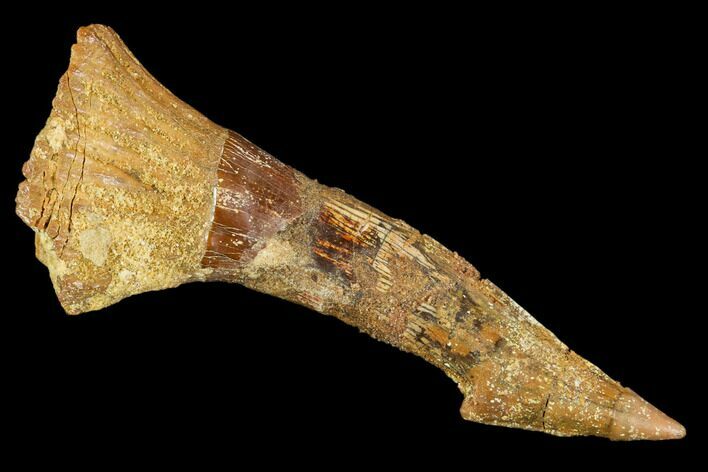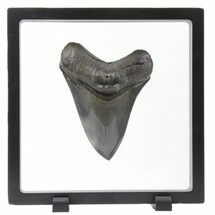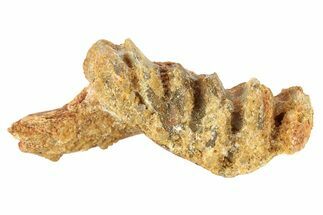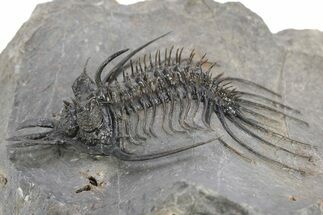This Specimen has been sold.
2.8" Fossil Sawfish (Onchopristis) Rostral Barb - Composite
This is a large specimen of a rostral barb/tooth from the extinct giant sawfish Onchopristis numidus. These barbs are fragile and typically not found intact. This barb is a composite fossil meaning it is constructed from two partial barbs that were attached together.
About Onchopristis
Onchopristis, or “giant saw”, is a genus of extinct giant sawskate that lived during the Upper Cretaceous in what is now North Africa. It had a long, hard, shovel-shaped snout called a rostrum. The saw-like rostrum, lined on both sides with modified tooth-like structures with hooks and barbs called denticles. Onchopristis used its intimidating, 2-meter long rostrum to unearth crustaceans at the bottom of shallow waters like sawfish do today.
With the modern sawfish, the rostrum is covered with electrosensitive pores that allow the sawfish to detect slight movements of prey hiding in the muddy sea floor. The rostrum also serves as a digging tool. Should suitable prey try to swim past, the normally lethargic sawfish springs from the bottom and slashes at it with its saw. Sawfish also defend themselves with their rostrum against intruding predators such as sharks.
The bizarre-looking Onchopristis were frequently torn apart by Spinosaurus when this enormous ray traveled up freshwater streams to breed and lay eggs. Onchopristis probably lived in schools. Crocodiles, Spinosaurus and other fish-eating theropods would have feasted on the 8-meter long rays.
Onchopristis, or “giant saw”, is a genus of extinct giant sawskate that lived during the Upper Cretaceous in what is now North Africa. It had a long, hard, shovel-shaped snout called a rostrum. The saw-like rostrum, lined on both sides with modified tooth-like structures with hooks and barbs called denticles. Onchopristis used its intimidating, 2-meter long rostrum to unearth crustaceans at the bottom of shallow waters like sawfish do today.
With the modern sawfish, the rostrum is covered with electrosensitive pores that allow the sawfish to detect slight movements of prey hiding in the muddy sea floor. The rostrum also serves as a digging tool. Should suitable prey try to swim past, the normally lethargic sawfish springs from the bottom and slashes at it with its saw. Sawfish also defend themselves with their rostrum against intruding predators such as sharks.
The bizarre-looking Onchopristis were frequently torn apart by Spinosaurus when this enormous ray traveled up freshwater streams to breed and lay eggs. Onchopristis probably lived in schools. Crocodiles, Spinosaurus and other fish-eating theropods would have feasted on the 8-meter long rays.
SPECIES
Onchopristis numidus
LOCATION
Taouz, Kem Kem Basin, Morocco
FORMATION
Kem Kem Beds
SIZE
2.8" long
CATEGORY
SUB CATEGORY
ITEM
#106380
We guarantee the authenticity of all of our specimens.
 Reviews
Reviews













